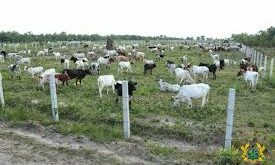Government has extended the temporary ban on the exportation of maize, rice, soybeans and other grains to September 20, 2022.
This announcement was contained in a press release sighted by GhanaWeb on Wednesday, May 18, 2022.
“The Ministry of Trade and Industry in its letter ref. no. DB6/118/03B dated 13th April 2022, conveyed approval of His Excellency the President to extend the temporary ban on the export of grains for a period of six (6) months, effective 1 April 2022 to 30th September 2022,” part of the release read.
It would be recalled that government, through the Ministry of Food and Agriculture restricted the exportation of these essential commodities in the poultry sub-sector; maize, and soybeans, rice to 8 countries on Monday, April 11, 2022.
The 8 countries affected by this directive include Niger, Sierra Leone, Republic of Congo, United Kingdom, Qatar, United States, Italy and Canada.
According to a Daily Graphic report sighted by GhanaWeb, the move by government forms part of measures to ensure there’s an increase in local poultry and livestock production, as well as, enhance food security in the country.
The report further indicated that no phytosanitary certificates would be issued for the export of both commodities; maize, soybeans by the Plant Protection and Regulatory Services Directorate.
“This follows a directive from the Ministry of Trade and Industry (MoTI) to restrict their export to ensure the availability of the produce, whose production is subsidised. A highly placed source at the PPRSD told the Daily Graphic last Friday that the directive from MoTI meant that the directorate could no longer issue new certificates,” Daily Graphic quoted a source to have said.
Reacting to the ban on export of maize and soybean, the General Secretary of the General Agricultural Workers Union (GAWU) of the Trades Union Congress (TUC), Edward Kareweh, said this move was only a short term measure to address future food crisis.
He stated that, “It is also a vindication of our point that given the challenges in the sector last year, including shortages and the smuggling of fertiliser, coupled with rains that destroyed most of the crops, our agricultural productivity will suffer.”
“For us, we see the export restriction on the selected commodities as a short-term measure to ensure that between May and June, we have enough quantities for the market, but that does not prepare us towards 2023,” Edward Kareweh added.
According to him, the country could face food shortage in 2023 if long term solutions are not put in place to address agricultural sector challenges.
 Home Of Ghana News Ghana News, Entertainment And More
Home Of Ghana News Ghana News, Entertainment And More





